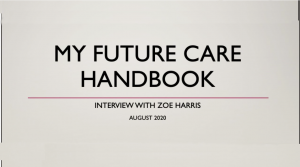
Photo by Harli Marten on Unsplash
Part One: Beyond the words
“Nonverbal communication forms a social language that is in many ways richer and more fundamental than our words.”
Leonard Mlodinow
Body and paralanguage always speak louder than the words we use.
When we are alert to these, communication can be more effective, helping us to better understand the main — and also the underlying messages being conveyed.
When talking with a person living with dementia, they are particularly important to understand, for a few reasons. Firstly, the person’s reliance on non-verbal communication may accelerate as their natural language skills become increasingly compromised by the condition. Secondly, their sense of self alters subtly over time. Thirdly, the speed at which the person is able to process and absorb information is reduced. Finally, emotional feelings may rise to the surface (sometimes quite unexpectedly) in situations that challenge them in some way. All these facors contribute to how the person is able to hear, listen and respond.
Approximately 60% of our interactions use non-verbal communication.
These include proxemics (the space between us), kinesics (our body and head movements), hand gestures and posture. Facial expression and eye contact are key, of course. Perhaps crucially, a person’s tone of voice, intonation, pitch and speed of speaking, hesitation noises, gestures and facial expressions, make a significant difference to how we perceive both them and their message. We rely more heavily on this paralanguage to make sense of the world and our experiences than we might realise, or like to admit.
For any person, a diagnosis of dementia can feel like the beginning of the end.
Hardly surprising perhaps, given the prevailing, dismal medical model with which dementia is often viewed: as a journey of emptiness and inexorable physical and mental decline.
This depersonalised stereotyping over-simplifies the experience, presenting a one-dimensional view of personhood, overly dominated by cognition and short-term memory loss. Of course, as the disease progresses, the person’s thoughts and words inevitably become more tangled and confused.
However, a broader (and more humane) definition recognises that a person is far more than their thoughts alone and that together with their many long-term memories and experiences, the essence of the person remains, despite changes to the brain.
To keep well-connected to a person living with the condition, we need to become increasingly attentive to their non-verbal clues — as well as our own. We need to try to be more aware of what we are both communicating, beyond the words.





No comment yet, add your voice below!